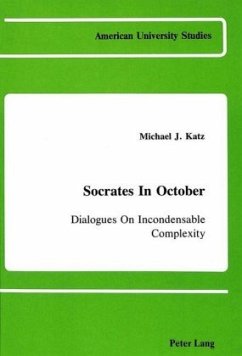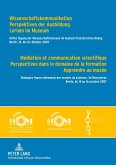Socrates has come to represent the pure joy of intellectual inquiry, and the Socratic dialogue embodies a special style of logical inquiry and also a clear framework of philosophical information. The intellectual grandfather of Plato's student Aristotle, Socrates still lived at a time when the distinctions between physical science and psychology, linguistics and aesthetics, mathematics and rhetoric were not rigid fences: all philosophical attacks were fair weaponry when trying to understand a problem. In 399 B.C., philosophers could not blithely speak in the language of modern science - using space-time continua or four dimensions or relativistic frames of reference or genetic codes to hide innumerable elemental assumptions about the nature of human understanding. Moreover, Socratic philosophy was always centered around people. Instead of a dense constructure of interlaced and multilayered scientific concepts, Socrates had only his hands and his feet, and the trees, the houses, the mountains, and all the people in the Agora, the marketplace of Athens. Michael Katz has taken advantage of Socrates' world - his style, his perspective, his times, and some of his important themes - to explore the perpetual problem of complexity: Is our world incondensably complex? If so - where and why? And, what does this mean for the kinds of understandings with which we must be satisfied?
Bitte wählen Sie Ihr Anliegen aus.
Rechnungen
Retourenschein anfordern
Bestellstatus
Storno






